May 2025 Reading Wrap-Up
My first Dickens, Calvin's Institutes, and a wonderful new book on American evangelicalism
Soooo… May was a pretty pathetic reading month for me. If we are going by the number of books, that is, as I only read five! However, two of the books I read were pretty big ones, so my total page count was just over 3000 pages, which is alright. Three of these books are fiction and two are nonfiction, and I greatly enjoyed all except one, which was a disappointment.
David Copperfield by Charles Dickens
⭐⭐
Guys… this book took me two weeks to read. No, that is not a lie. Sure, it is a big book, but I have read longer books in less time. I was truly unprepared for just how boring, tedious, and annoying this book would be. You see, I happen to really love 19th-century literature; all of my top three favourite standalone books are from that time, and I had never read a 19th-century book I disliked. Until now, that is. Not ever having read a Charles Dickens book before, I was beginning to feel like a fraud; I mean, how could I claim to be a fan of 19th-century literature without having read any books by one of the most famous and prolific authors of this time? So, after hearing from a few different sources that David Copperfield is the best of his books to start with, I decided to read it this year.
David Copperfield is basically just the story of a guy, named, you guessed it, David Copperfield. It starts a bit before his birth, as his father died before he was born, and it then moves into David’s not-so-nice childhood. Essentially, his mom later gets married to some guy, who, like nearly all stepfathers in fiction, is a complete jerk. But then his mom dies too, of course, because this book has the whole “orphaned child” trope. It continues telling about his life and other stuff, except I will not say much more because spoilers.
So, I had a lot of issues with David Copperfield. First of all, this book was a massive slog to read! During the two weeks(!) of me reading this, I… spent a lot of time doing other things (mostly looking up stuff online and asking ChatGPT too many questions about theology) because I legitimately did not want to read this book. Yeah, I could have just started reading another book at the same time, but I knew that if I did that, I would just want to read that other book instead and would probably never finish this one. At the 60% mark, I wanted to give up on this so badly. But I did not, because I had promised myself I would read this book in 2025, and when I make a promise, I do whatever I can to keep it.
Secondly, I only liked one of the characters. David is a boring, cliche, orphan protagonist who really does not do all that much. The others were not much good either, except for Mr. Dick, who was the only character I actually cared about, probably because he is a bit of a weirdo. He seems to display some autistic traits, which is always interesting to see in books from before autism was known about. But aside from him, the characters were all pretty bleh.
Thirdly, I found it far too annoying. So many people in this book talk improperly by saying things like “azactly,” “wurld,” and “they was,” plus, there was an absurd number of apostrophes in the dialogue! I understand making the dialogue authentic to the characters, but I do not want to read a book that has bad grammar and spelling. The romance between David and the first woman he marries is super cringey, too. He kept calling her his “child-wife,” which is just… disturbing and gross, she kept calling him “Doady,” which sounds too much like “Toady,” and the descriptions of how much David loved her were way over the top.
So… that’s the book. A long, boring, and tedious story with lots of annoying stuff, hardly any plot, and several deaths that seemed so random. It was not all bad, and there was nothing in here that I had a deep hatred of, but it was not good either, so it gets two stars. And when I do not like the first book I read by a certain author, I am very hesitant to pick up another of their books, so I will probably not read another Dickens book for a good long while. I kind of regret this since it took me long and I did not even enjoy it, but I guess I can brag about having read it now.
The Screaming Staircase by Jonathan Stroud
⭐⭐⭐⭐⭐
After reading that big book, I wanted something easier to read, so I started with this series I have wanted to read for nearly five years. It is a fantasy story about ghosts, following a girl named Lucy who investigates mysterious supernatural happenings with two boys, Lockwood and George. I found it a fun read and something different from what most middle-grade fantasy is like, especially with its spooky vibes, which is something I always love to see. This series is also very British, which I was unaware of before reading it, and I think the number of mentions of tea here is quite amusing!
Institutes of the Christian Religion by John Calvin
⭐⭐⭐⭐⭐
So… I read a fourth 1000+ page book this year, only five months into 2025. Am I crazy, or am I crazy? I guess I just really like reading long books, or something. Normally, I would have continued reading the series I started just before this (and I will return to that series!), but stuff happened, and I became kind of hyperfixated with studying eformed theology, so I thought now was probably the best time to read this book that I had been putting off for three and a half years because the title made it sound intimidating.
Obviously, The Institutes of the Christian Religion was written by none other than one of the most important figures in the Protestant Reformation, John Calvin (yes, the guy that Calvinism is named after), in the sixteenth century. Due to its size, this book covers several topics such as sources of revelation, the Trinity, sin, the incarnation, salvation, predestination, church government, and the sacraments. It goes very in-depth with arguments from Scripture and frequent use of the church fathers, especially Augustine.
However, I did not expect to find this book as entertaining and amusing as I did! Calvin roasted a whole bunch of people here, including groups like the Catholics and Anabaptists, that guy Michael Servetus, and numerous heretical sects such as Pelagians, Arians, Marcionites, Nestorians, Manichees, Eutychians, and potentially more that I cannot remember at the moment. Truly, the roasting was hilarious, and I loved to see it.
Some of my favourite funny quotes from this book were:
It is most absurd, therefore, to maintain, as some do, that religion was devised by the cunning and craft of a few individuals, as a means of keeping the body of the people in due subjection, while there was nothing which those very individuals, while teaching others to worship God, less believed than the existance of a God. (Book 1, Chapter 3)
I am aware of what is muttered in corners by certain miscreants, when they would display their acuteness in assailing divine truth. They ask, how do we know that Moses and the prophets wrote the books which now bear their names? Nay, they even dare to question whether there was ever a Moses. Were any one to question whether there was ever a Plato, or an Aristotle, or a Cicero, would not the rod or the whip be deemed the fit chastisement of such folly? (Book 1, Chapter 8)
First, were I to deny that there is any room for their allegory, what could they say? There can be no doubt that the Fathers invented it contrary to the genuine sense of the parable. Allegories ought to be carried no further than Scripture expressly sanctions: so far are they from forming a sufficient basis to found doctrines upon. (Book 2, Chapter 5)
How shamefully effeminate would it have been (as I have observed) to be so excruciated by the fear of an ordinary death as to sweat drops of blood, and not even be revived by the presence of angels? (Book 2, Chapter 16)
We are bound, therefore, to raise our voice to its highest pitch, and cry aloud that purgatory is a deadly device of Satan; that it makes void the cross of Christ; that it offers intolerable insult to the divine mercy; that it undermines and overthrows our faith. (Book 3, Chapter 5)
Shall we recognize the Apostolic See where we see nothing but horrible apostasy? Shall he be the vicar of Christ who, by his furious in persecuting the Gospel, plainly declares himself himself to be Antichrist? Shall he be the successor of Peter who goes about with fire and sword demolishing everything that Peter built? Shall he the Head of the Church who, after dissevering the Church from Christ, her only true Head, tears and lacerates her members? (Book 4, Chapter 7)
Given all that, it is probably no surprise to know that I loved reading The Institutes of the Christian Religion. It was incredibly informative, extremely based, and all around, a highly interesting read. Maybe it is a good thing I read it just recently, as opposed to some years ago, because if I had read it then, I would have disagreed with a fair bit of stuff here. I have changed my mind on a lot of things over the past few years and found myself in agreement with basically everything except for his calling of the Pope the Antichrist, lol.1 Anyway, if you like learning about theology and do not mind large books, you should totally read this one because it is certainly impressive, regardless of how much you agree or disagree with Calvin’s ideas.
The Light in Our Eyes by
⭐⭐⭐⭐⭐
The Light in Our Eyes is a wonderful book touching on the author's experiences of American evangelicalism and how this subculture often misses the big picture of Christianity. It shows how American evangelicalism has become too focused on things like "saving souls" and "going to heaven" to the exclusion of impacting the culture and the world in general, or as one might put it, "building the kingdom of God on Earth." The book covers the ways that both fundamentalist and progressive forms of Christianity fail to be fulfilling, and it emphasizes the importance of present-day Christians learning from the historical church. Although I had high expectations for this book, given my enjoyment of
's writing on Substack, it managed to be even better than I thought it would be, with its mix of relatability, humour, and hopefulness.Not only was this book easy to read (especially compared to the book I read just before it!), but it was honestly addicting. It really did capture my interest, and I read it pretty quickly because of that! I think that these sort of “deconstruction” stories are important to share and learn from, because walking away from the specific type of Christianity one was raised with does not mean walking away from the faith altogether. Many things in The Light in Our Eyes strongly resonated with me, and it gets bonus points for the LotR references and C. S. Lewis quotes.
I would not say that I ever had a “deconstruction” phase, as I have always been confident in the truth of Christianity, but my views on certain things have shifted over time, and I do have a strong longing for a more historic form of Christianity than the one I was raised with, which I know is incredibly common among those in my generation. Truly, I think this book came out at just the right time for me because a lot of things have been happening in my life lately, which I will probably write about at some later date, but I have recently developed a genuine craving for going to church, which is something I literally never thought would happen. Reading this book only intensified those feelings, and so, after two years of not going to church, I asked my manager to give me Sundays off work so I can start attending church regularly again, which I will do starting next week. So, I liked this book a lot for very many reasons, and if you are someone who has become disillusioned with North American evangelical subculture, I think you will enjoy it too.
The Whispering Skull by Jonathan Stroud
⭐⭐⭐⭐⭐
The Whispering Skull is the second book in the Lockwood & Co. series, and I liked it even more than the first one. I mean, the characters go to a cemetery, dig up an iron coffin, and open it to discover a body that is described in gory detail! Haha, okay, maybe I am a bit too morbid, but it was really good, and I do love cemeteries. Next month, I will be reading the remaining three installments in this series, which I have high hopes for.
Although I did not read a whole lot last month, I rambled quite a bit about three of the books, so this post is a decent length! As always, I have another post coming next week that I think should be interesting, as it is a personal life story, and I have not written something like that in a while.
I actually used to be quite anti-Catholic and even thought Catholics were not real Christians when I was a kid. While I still have my objections to various Catholic doctrines and practices, I believe that sincere Catholics are my brothers and sisters in the faith, and I have come to have a lot of respect for the Catholic Church.


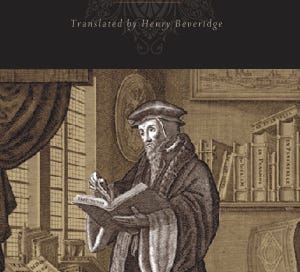


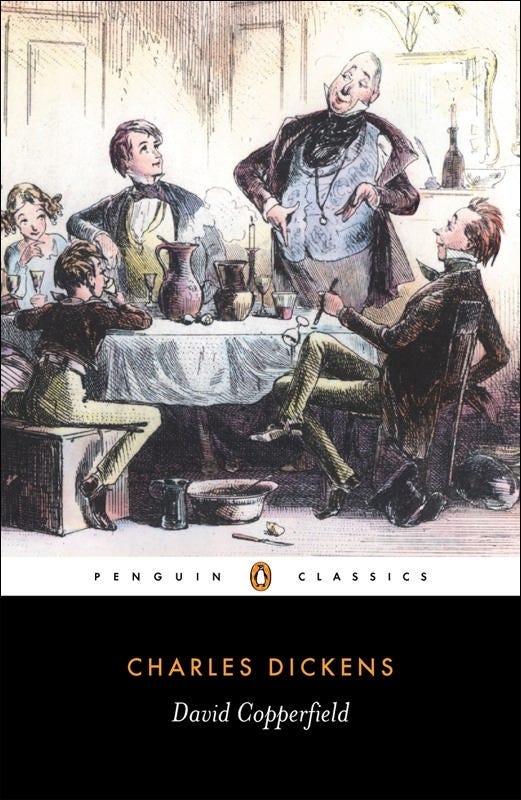
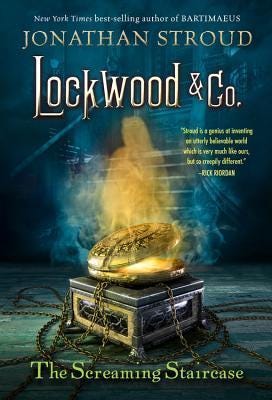

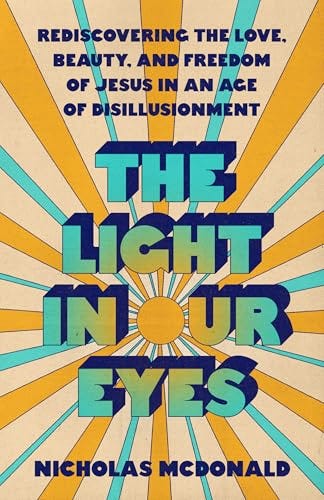
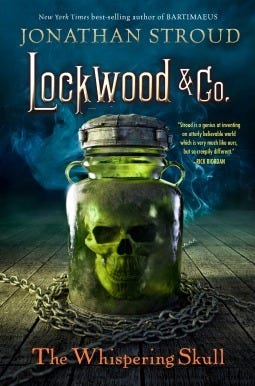
Giggled at your commentary on Dickens. It's interesting that, while (in my experience) fellow autistics tend to communicate best with each other, the different flavors of autism can sometimes be mutually extremely annoying.
Also: so glad you are wanting to go to church again! Hoping you settle into a congregation where you aren't overstimulated--that has been a significant part of my husband's and my journey through various congregations in the same traditions. Consistent liturgy and one hymnal as a source of good-quality music have been huge helps for us (we grew up Lutheran and are now Anglican).
I loved your commentary on Calvin. Sometimes what we read exceeds our expectations and other times the complete opposite. I am thrilled you want to go to church again and that you asked for Sundays off. Community is so important. Well done!